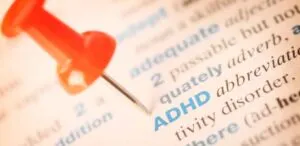Dementia:
Dementia refers to a decrease in cognitive abilities that hinders a person’s ability to carry out daily tasks. It is not a specific disease but a collection of symptoms that can arise from different underlying conditions. Alzheimer’s disease is one of the leading causes of dementia, accounting for 60-80% of cases.
What are the symptoms of dementia?
Dementia refers to the deterioration of cognitive function to the extent that it hinders a person’s capacity to carry out everyday tasks. The symptoms of dementia are contingent on the type of dementia and the specific brain area it impacts. Nevertheless, some typical indications include:
- Memory loss: Difficulty remembering recent events, names, or faces.
- Difficulty with communication and language: Struggling to find the right words, difficulty following conversations, or repeating the same words or phrases.
- Difficulty with planning and organizing: Struggling to follow a recipe, keep track of bills, or plan a trip.
- Difficulty with problem-solving: Struggling to complete familiar tasks, for instance, using a telephone or washing dishes.
- Difficulty with coordination and motor functions: Struggling with buttoning a shirt, writing or drawing, or walking.
- Changes in mood and behavior: Depression, anxiety, apathy, agitation, or aggression.
- Difficulty with perception: difficulty recognizing familiar objects or people or experiencing hallucinations.

It’s worth noting that some of these symptoms of dementia, for instance, memory loss and difficulty with problem-solving, are also a normal part of aging. However, when these symptoms become severe enough to interfere with daily life activities, it may be a sign of dementia. It’s important to consult a healthcare professional for an evaluation if you notice any of these symptoms of dementia in yourself or a loved one.
Risk factors of dementia
There are several risk factors that have been associated with an increased risk of developing dementia. Some of the significant risk factors include:
- Age: As a person ages, their likelihood of developing dementia also increases.
- Genetics: A family history of dementia also increases the risk of developing the disorder.
- Cardiovascular risk factors: High blood pressure, high cholesterol, diabetes, and a history of stroke or heart disease can increase the risk of developing dementia.
- Head injury: Traumatic brain injury, especially if repeated, increases the risk of developing dementia.
- Lifestyle factors: smoking, lack of physical activity, poor diet, and excessive alcohol consumption have been associated with an increased risk of developing dementia.
- Social isolation and low level of education: People who have low social contact and a low level of education have been found to have a higher risk of developing dementia.
What are the causes of dementia?
The specific causes of dementia can vary depending on the type of dementia. The most common cause of dementia is Alzheimer’s disease (Visit our website and read more about Alzheimer’s disease). Alzheimer’s disease is caused by the progressive death of nerve cells in the brain, causing a decline in cognitive function. The exact cause of this nerve cell death is not fully understood.
Other causes of dementia include:
- Vascular dementia: caused by damage to the blood vessels that supply the brain, often as a result of a stroke or other cardiovascular problems.
- Lewy body dementia: is caused by abnormal deposits of a protein called alpha-synuclein in the brain.
- Frontotemporal dementia: caused by degeneration of the frontal and temporal lobes of the brain.
- Huntington’s disease: is caused by a genetic mutation that causes degeneration of the nerve cells in the brain.
- Traumatic brain injury: caused by a blow to the head that can lead to long-term damage of the brain cells.
- Infections: Certain infections, such as HIV, syphilis, or Lyme disease, can cause inflammation in the brain, which can lead to dementia.
- Vitamin deficiencies: Vitamin B1 (thiamine) deficiency can cause a form of dementia called Wernicke-Korsakoff syndrome.
- Heavy metal toxicity: Exposure to heavy metals such as lead, mercury, or aluminum can cause brain damage and dementia.
How to diagnose dementia?
Symptoms of Dementia are usually diagnosed by a healthcare professional, such as a neurologist, geriatrician, or psychiatrist, after a thorough evaluation. The diagnostic process typically involves:
- Medical history: The healthcare professional will ask for a detailed medical history, including any symptoms, family history of dementia, and any other relevant information.
- Physical examination: A physical exam will also be performed to check for any signs of physical illness that could be contributing to cognitive decline.
- Cognitive and neuropsychological testing: The healthcare professional will use a combination of tests to assess cognitive function, including memory, attention, language, and problem-solving skills.
- Laboratory tests: Blood tests, urine tests, and imaging studies such as MRI or CT scans may be done to rule out other possible causes of cognitive decline.
Meeting diagnostic criteria: The healthcare professional will use the information gathered from the above steps to determine if the person meets the criteria for a diagnosis of dementia as outlined in the Diagnostics and Statistical Manual of Mental Disorders.

How to treat dementia?
Dementia is a progressive disorder, and currently, there is no cure. However, there are treatments available that can help slow the progression of the disease and improve the quality of life for people with dementia. The specific treatment plan will depend on the type of dementia and the individual’s symptoms.
Some common treatments for the symptoms of dementia include:
- Medications: Certain medications can help to improve cognitive function in people with Alzheimer’s disease.
- Non-pharmacological therapies: Non-pharmacological therapies, such as cognitive stimulation therapy, occupational therapy, and physical therapy, can improve cognitive function and maintain independence.
- Supportive care: Supportive care can help to improve the quality of life for people with dementia.
- Behavioral therapies: Behavioral therapies, such as reality orientation therapy, can help manage behavioral symptoms such as agitation, depression, and insomnia.
- Support for caregivers: Support for caregivers, such as counseling, respite care, and support groups, can aid in decreasing stress and improve the overall well-being of caregivers.
Novus Beginning Psychiatry: Your Path to Health and Wellness Starts Here!
We understand that navigating the complexities of mental health can feel overwhelming, but you don’t have to face it alone. At Novus Beginning Psychiatry, we’re here to support you every step of the way. Whether you’re seeking therapy, medication, or a combination of both, our compassionate professionals are dedicated to helping you find the path to a happier, healthier life.
Our highly skilled psychiatrists are experienced in a wide range of mental health conditions, including anxiety, depression, bipolar disorder, OCD, PTSD, ADHD, autism, symptoms of dementia, and more. We offer evidence-based therapies that have been proven effective in helping individuals overcome their challenges. From cognitive-behavioral therapy (CBT) to couples/family therapy, we utilize the most up-to-date techniques to empower you on your healing journey.
We also recognize that medication is vital in managing certain psychological health conditions. Our team includes Dr. Nibras, who is a board-certified psychiatrist well-versed in medication management. He works closely with you to develop a comprehensive treatment plan, as we believe in the power of personalized care.
So, take the first step towards a brighter future. Contact us today to schedule an appointment. Our friendly staff is ready to assist you in finding a convenient time to meet with our dedicated professionals. Call (832)856-4718 and let us help you take charge of your mental well-being.
Medication Management For Psychiatric Wellness
At Novus Beginning Psychiatry, we’re dedicated to helping you unlock the power of effective medication management. Our team of psychiatrists has years of experience and understands the importance of finding the right balance for your mental health journey. We offer personalized and compassionate care, creating medication plans that are tailored to your unique needs. Our understanding of psychopharmacology allows us to provide the most advanced and evidence-based treatments available.
Our goal is to help you by providing the right medications to enhance your therapy outcomes, reduce your symptoms, and improve your overall well-being. We want to be your trusted partner on the path to a brighter future. Please don’t hesitate to contact us at Novus Beginning Psychiatry to experience the transformative effects of our comprehensive medication management approach.
Who is Dr. Nibras?
Dr. Sohail Nibras is a double board-certified psychiatrist in child, adolescent, and adult psychiatry. He completed his education at Saint Louis University and the American University of Integrative Science. He excels in treatments based on psychiatric care and therapeutic sessions and has experience treating dual psychiatric and substance use disorders. He is an assistant professor at the Menninger Department of Psychiatry and Behavioral Sciences at Baylor College of Medicine in Houston, Texas. He serves as an attending psychiatrist at Texas Children’s Hospital. He trains future psychiatrists and engages in scholarly research projects.
Visit us
Come and visit us at one of our locations in person or meet us via telepsychiatry/online!
We’re here to help in Texas, ready to meet you in person. If you’re unable to make it in person, don’t worry, we’re also available online, so you can meet us easily from the comfort of your own home. Whether you prefer to see us face-to-face or connect with us online, we’re here to assist you every step of the way.
Address in Katy
23410 Grand Reserve Drive, Ste. 401 & 402 Katy, Texas 77494



